2024 Legislative Session Debrief
During this legislative session, a total of 262 bills with impacts on food systems were introduced in the General Assembly. Of these, 60 bills successfully became law. There were also several key food systems programs included in the FY2024 budget. Overall, the food system became a greater priority for the Governor and General Assembly compared to last year – although much work remains to ensure a just and resilient RI food system.
Notably, funding for one of the RIFPC’s priorities related to preserving active farmland was added to the state’s planned bond referendum for 2024. This significant achievement was the work of the Green Bond Coalition, of which Rhode Island Food Policy Council (RIFPC) is a collaborative partner. Other RIFPC priorities including Healthy School Meals for All, creating a composting fund, a surplus food donation tax credit, and an urban/small farmer tax credit did not become law, but did receive growing levels of recognition and support in the legislature.
Food Access & Nutrition Security
A limited number of food access-related bills became law this year. The final FY2024 budget includes sufficient funding to eliminate the reduced-price category for school meals, enabling students who would otherwise pay the reduced-price cost for meals to be offered meals at no charge to their family. Similarly, in the realm of school food, SB3045/HB8094A enabled a two-year waiver of whole grain requirements for meals served in public schools. These changes will be seen in the upcoming academic year.
However, several proposed bills related to food access were unsuccessful this year. While there was a Senate Joint Resolution (SJR2855) making a $5 million appropriation for the Eat Well, Be Well Pilot Rewards Program, the budget failed to include any specific funding for the rewards program. Similarly, funding for HSM4A (SB2320/HB7400) was also left out of the budget for this year. In total, the General Assembly introduced over 20 bills related to food access and nutrition security as followed in RIFPC’s bill tracker.
Food Business & Economic Development
The first food system law of this session – passed in February! – was the Outdoor Dining Act (SB2028-A/HB7064A), enabling post-pandemic outdoor dining to continue throughout the state. Legislation permitting manufacturer-wineries to sell wine for on-site and off-site consumption (SB2127/HB7220) and a bill allowing blue crab harvesting in the hours of darkness (SB2954/HB7440) became law, expanding economic opportunities for these food businesses. While some bills regarding general business operations became law this session, these three will significantly impact food businesses in particular.
There were also a number of notable food business bills introduced but remained unsuccessful this legislative year. RIFPC’s priority around an urban and small farmer tax credit (SB2335/HB7684) was successfully heard in both finance committees but did not make it into the final FY24 budget. A House Joint Resolution (HJR8280) to create a special legislative commission to study, provide recommendations, and oversee implementation of the adoption of Good Food Purchasing Standards for the state was introduced late in session but managed to secure a bill hearing. Attempts to regulate the total number of self-service checkouts in grocery stores (SB2268A/HB7230) and attempts to enable the sale of raw milk among other food items (HB7441) did not succeed this year either. In total, RIFPC’s bill tracker categories related to food business and economic development followed over 110 different pieces of legislation.
Food, Climate, & Environment
Within food, climate, and environment categories this year, there were a few notable bills that have become law along with budgeted bond allocations for preserving active farmland. The final Green Bond proposal included $13 million to conserve open space, forest and farmland, with $5 million specifically earmarked for active farmland preservation, which will be put before voters in November. Moreover, subject to DEM regulations, Rhode Islanders are now permitted to hunt wild turkeys using crossbows (SB2154/HB7730). The Renewable Ready Program Act (SB2293Aaa/HB7616A) has been established, creating a fund to support renewable energy projects on previously contaminated properties. Additionally, DEM is enabled to lease certain agricultural lands within the Sapowet Marsh Management Area, but any form of commercial operation (including aquaculture) is banned from the waters in Sapowet Cove (SB2415A/HB7060A). Furthermore, updates to the Toxic Packaging Reduction Act have postponed the ban on PFAS in food packaging and processing agents, aiming for phased implementation by 2025 and 2027, respectively (SB2152Aaa/HB7356Aaa). Lastly, DEM’s Chief Resilience Officer is mandated to develop and maintain a comprehensive resiliency and community recovery plan for the state (SB2298Aaa/HB7022Aaa). The breadth of these bills shows the overall emphasis on the intersection of food, climate, and environment during this session.
However, several bills did not succeed in passing this year including RIFPC priorities to establish a compost fund (SB2753/HB7856) and create a surplus food donation tax credit (SB2757/HB7995). These bills include an attempt to define agricultural land under the legal chapter defining DEM’s agricultural functions (HB7729). Similarly, SB2541/HB8043 seeking to establish a unified template for state agencies to track climate emissions as part of the Executive Climate Change Coordinating Council’s responsibilities never made it out of committee. The Rhode Island Climate Change and Ocean Protection Youth Education and Workforce Development Act (SB2356/HB7496) was also unsuccessful. Other failed bills included a proposal to integrate ethical energy standards into the 2021 Act on Climate (SB2044/HB7816), an initiative to establish Green Justice Zones for environmental equity (SB2292), attempts to authorize the planting of pollinator-friendly species by RIDOT (HB7279), and a proposal for municipalities to offer homestead tax exemptions on residential properties (SB2369). RIFPC’s bill tracker followed more than 100 bills at the intersection of food, climate, and environment.

